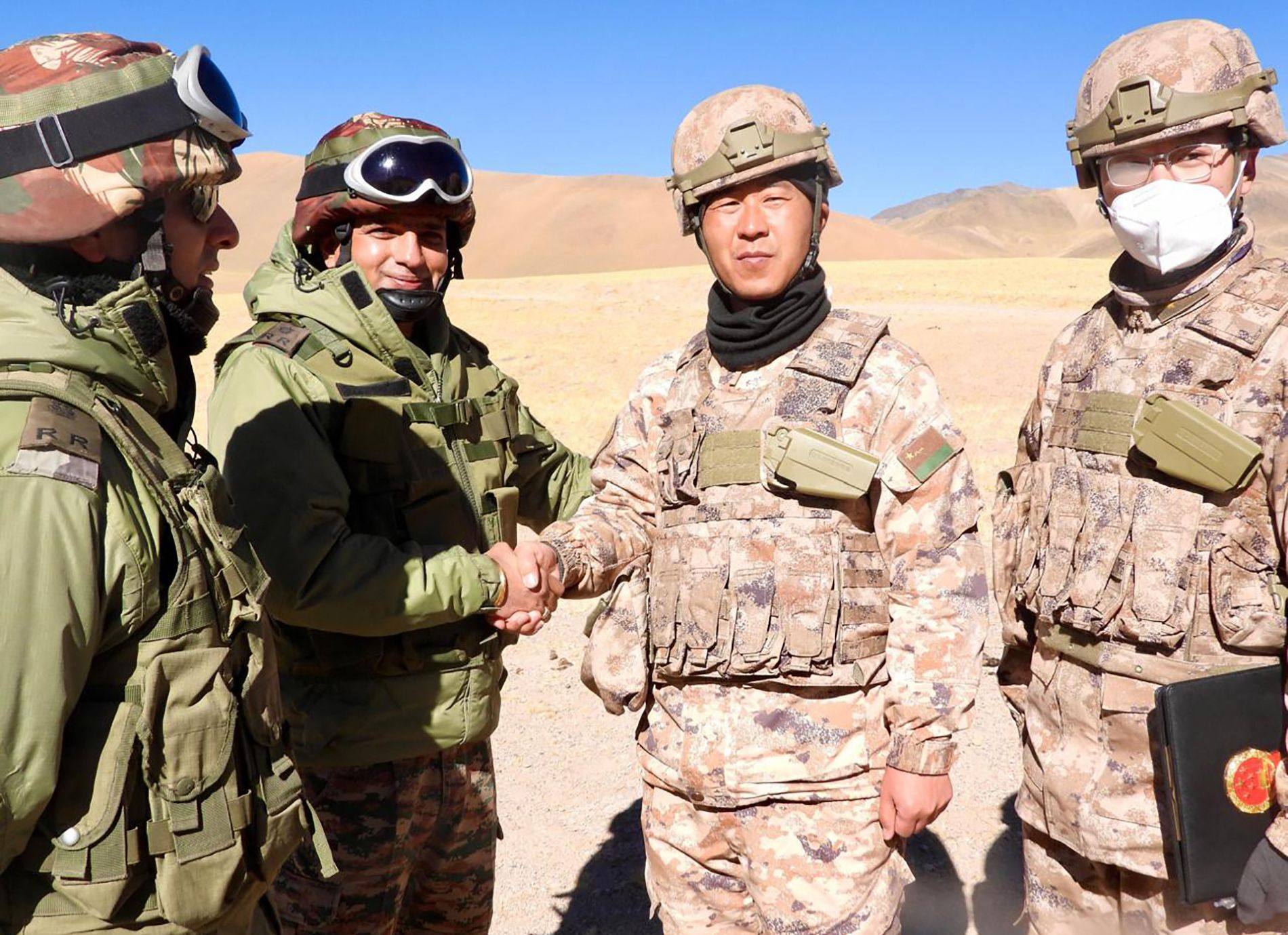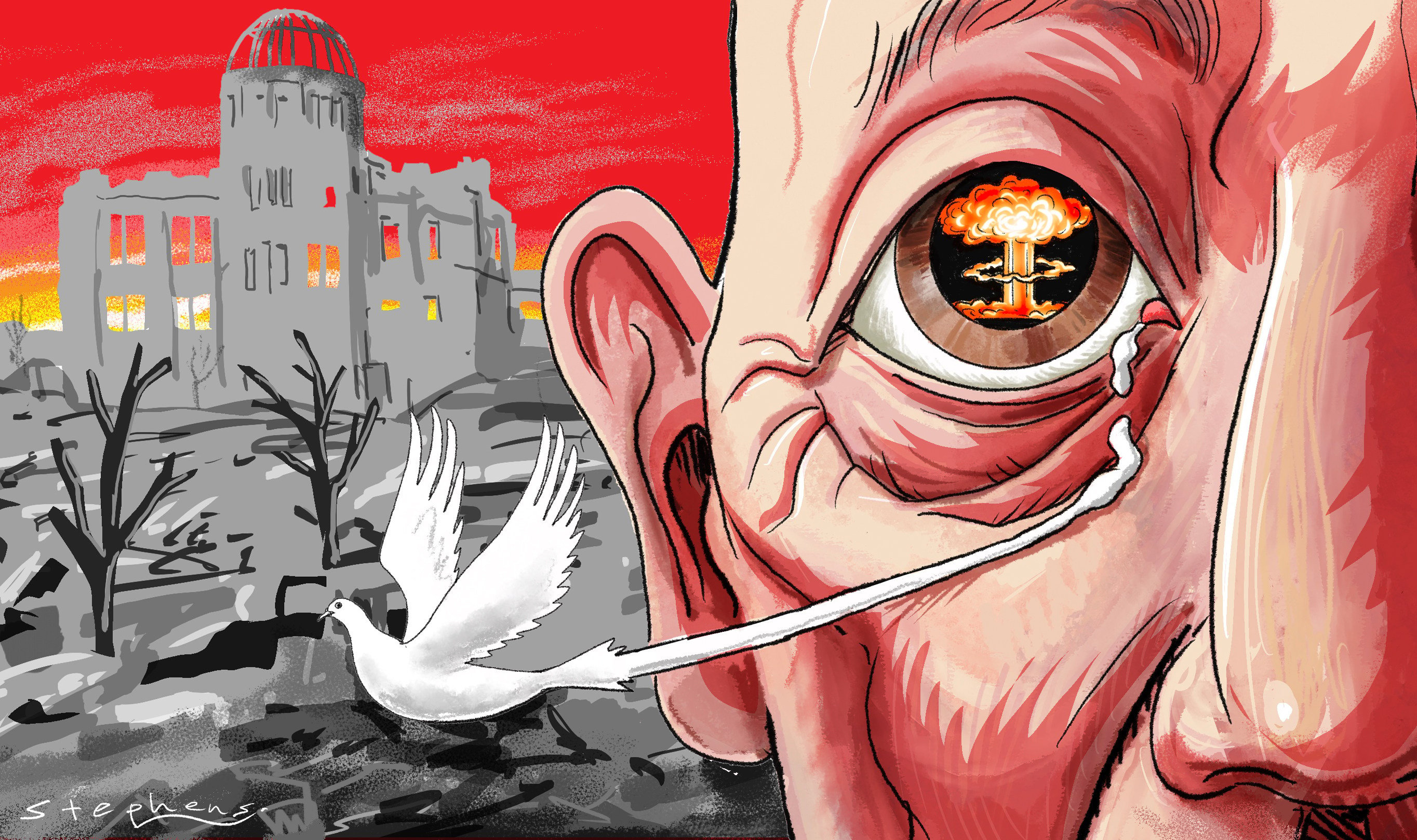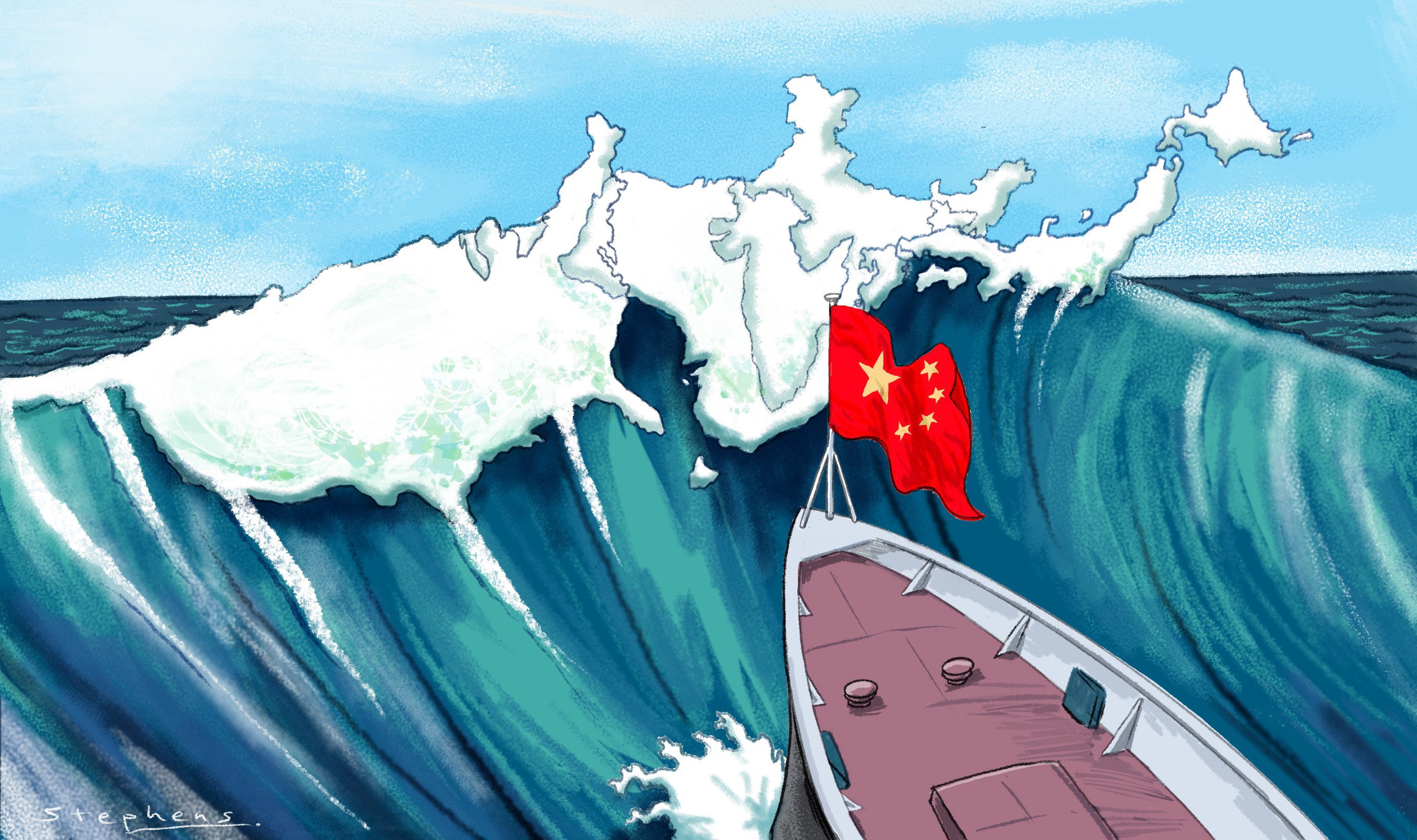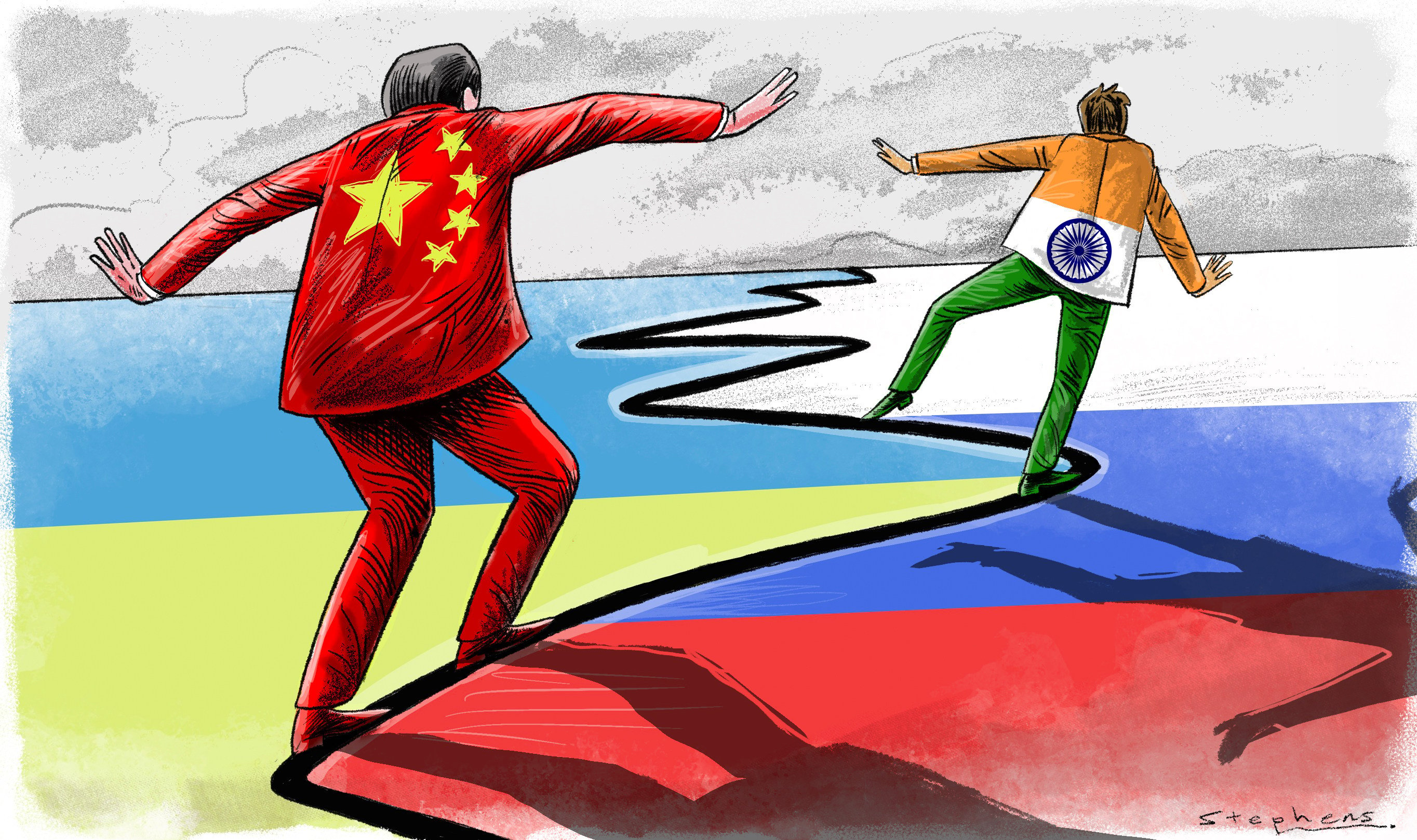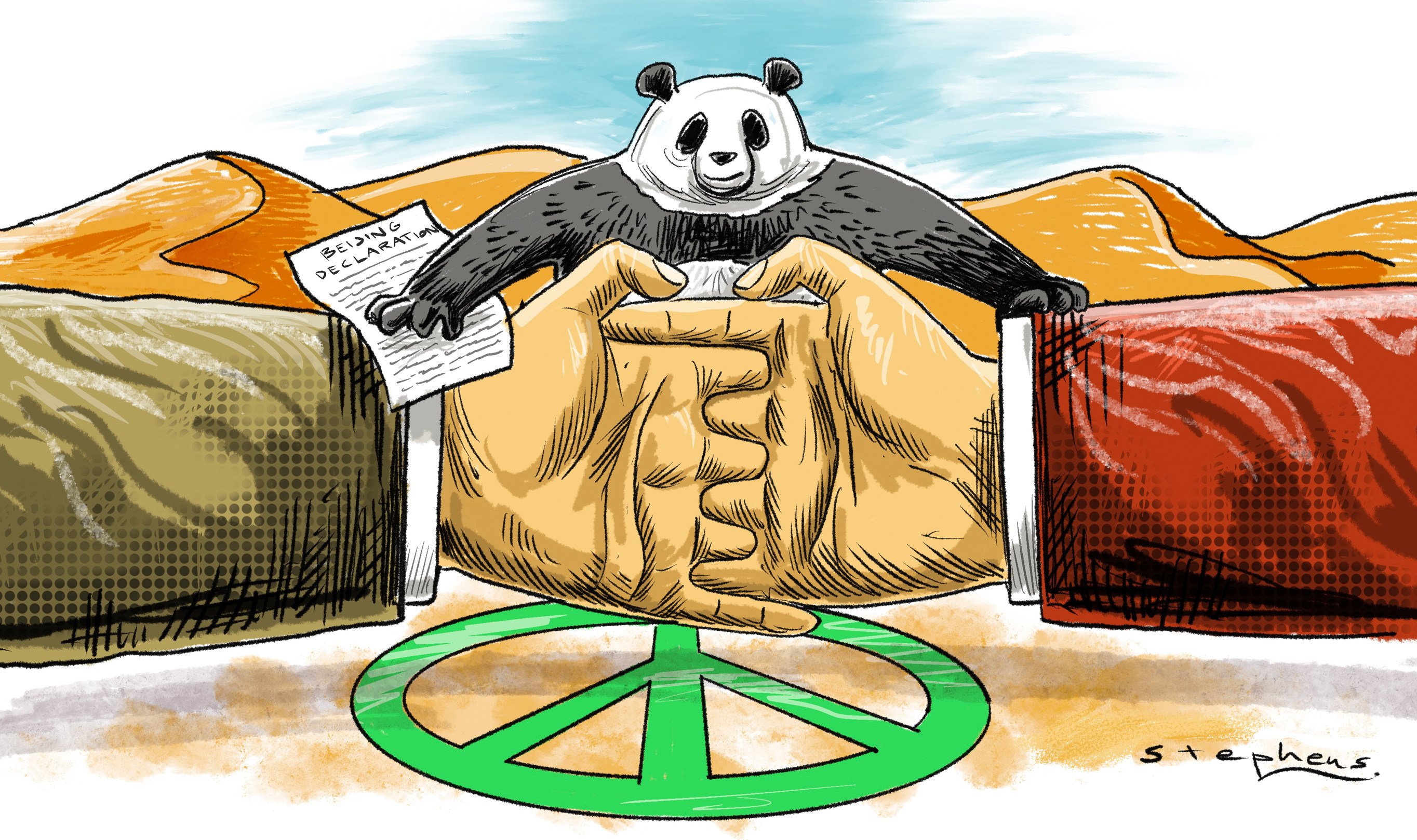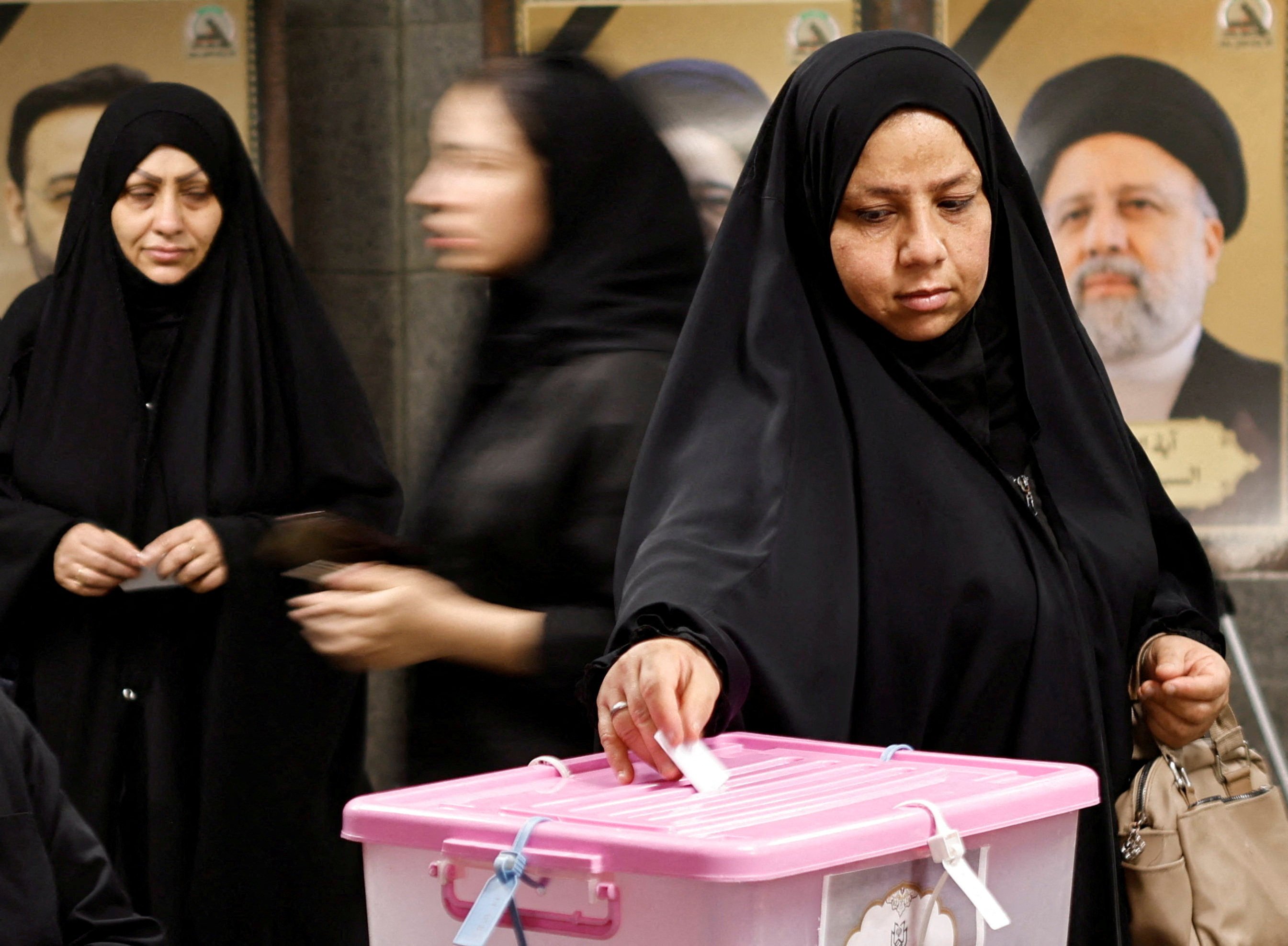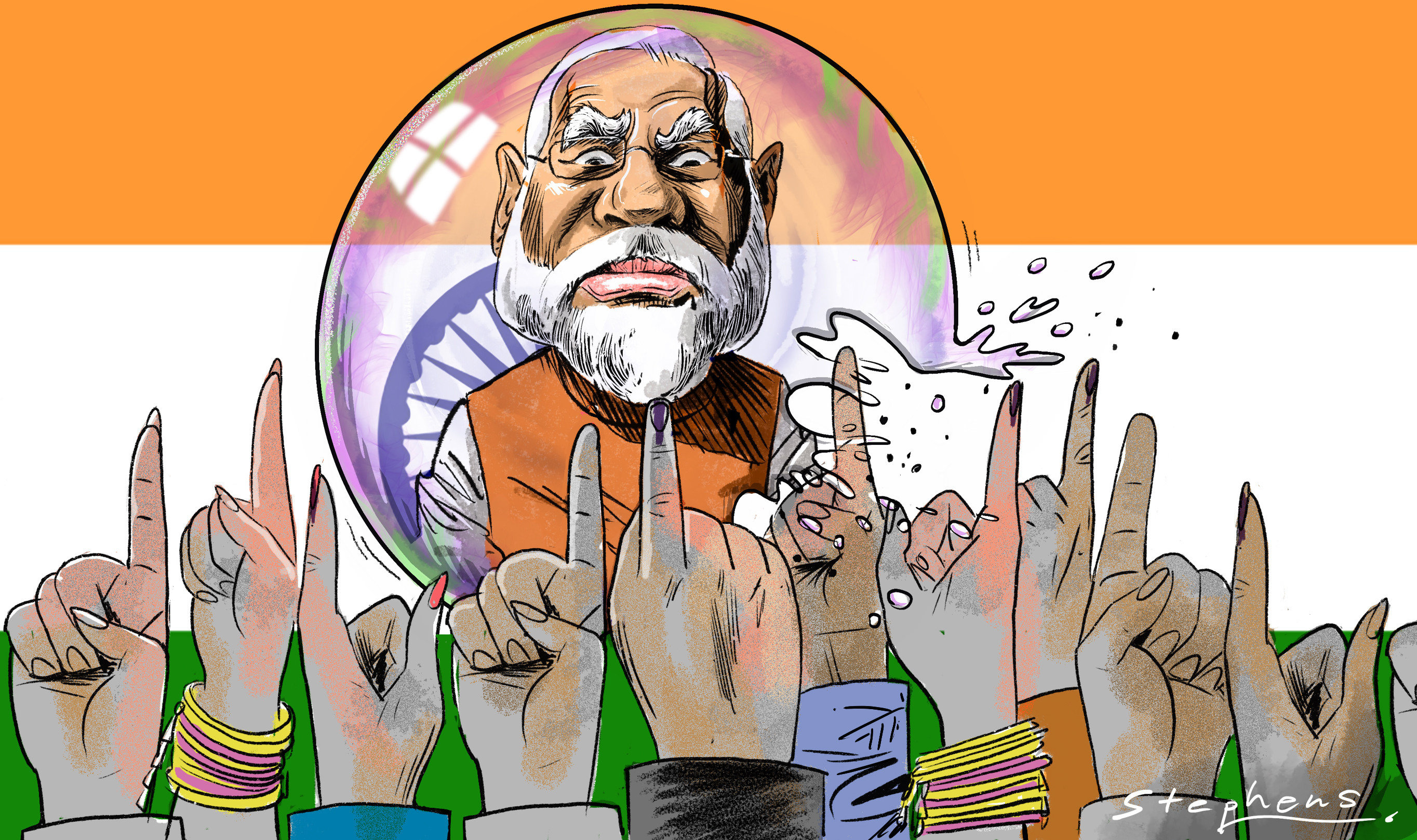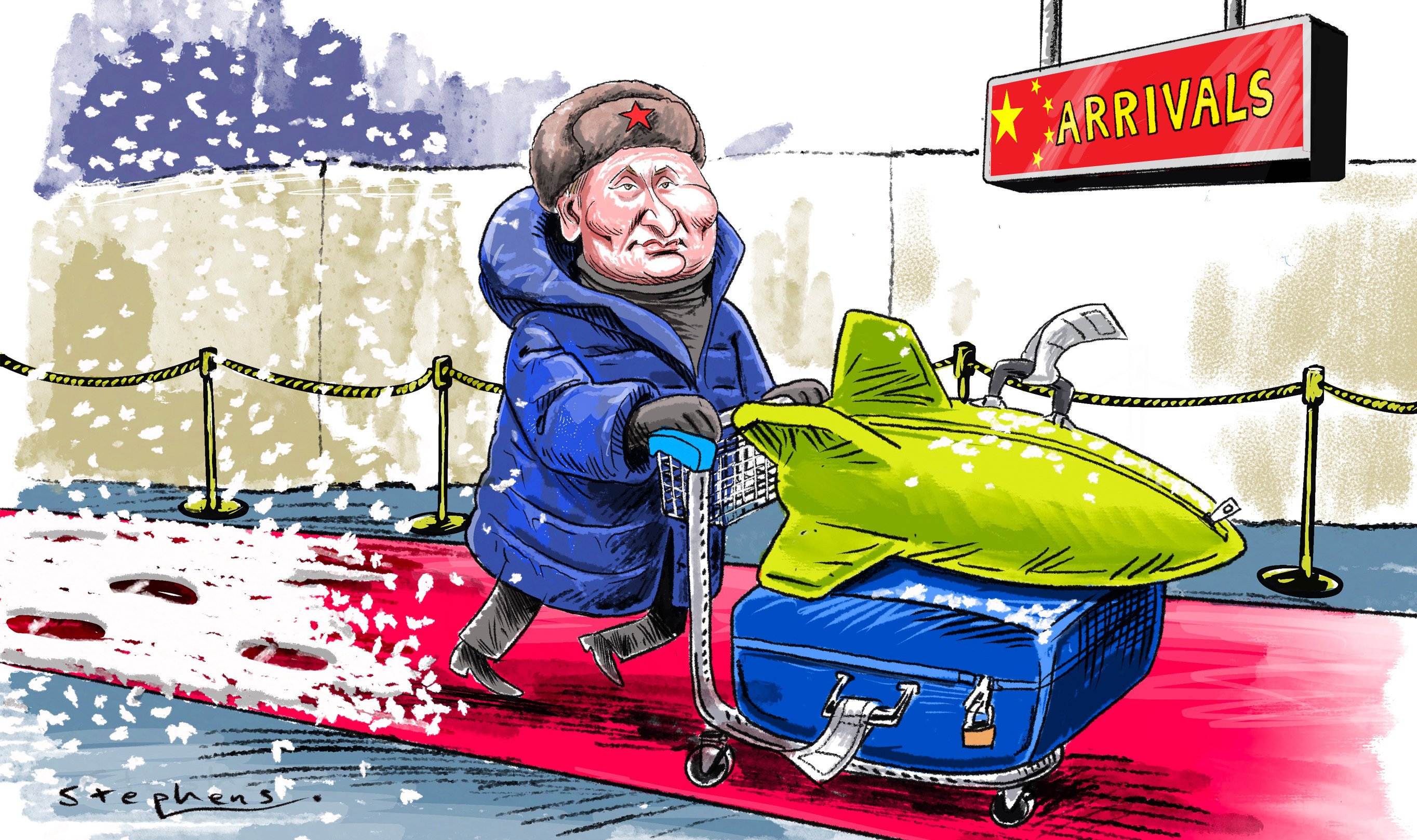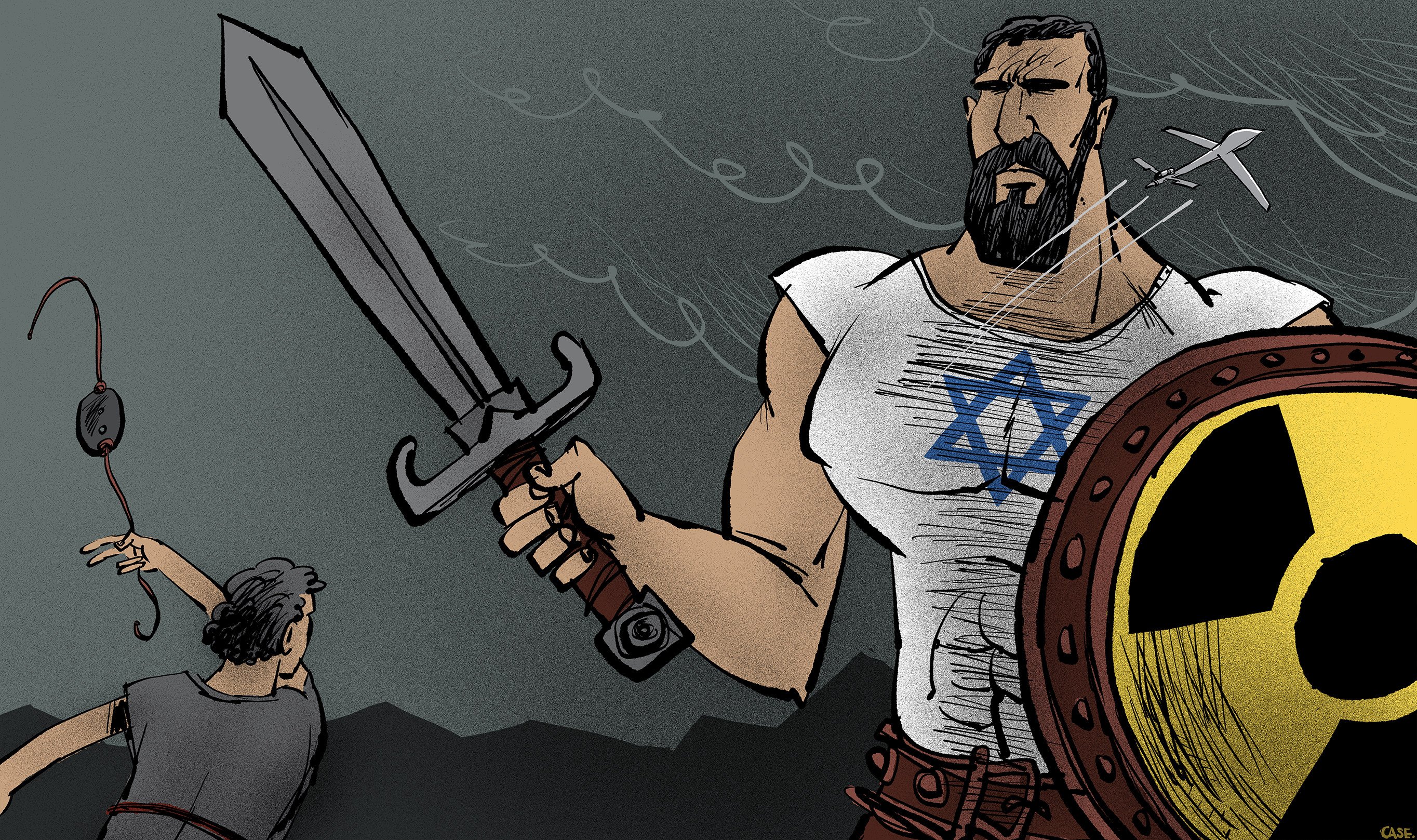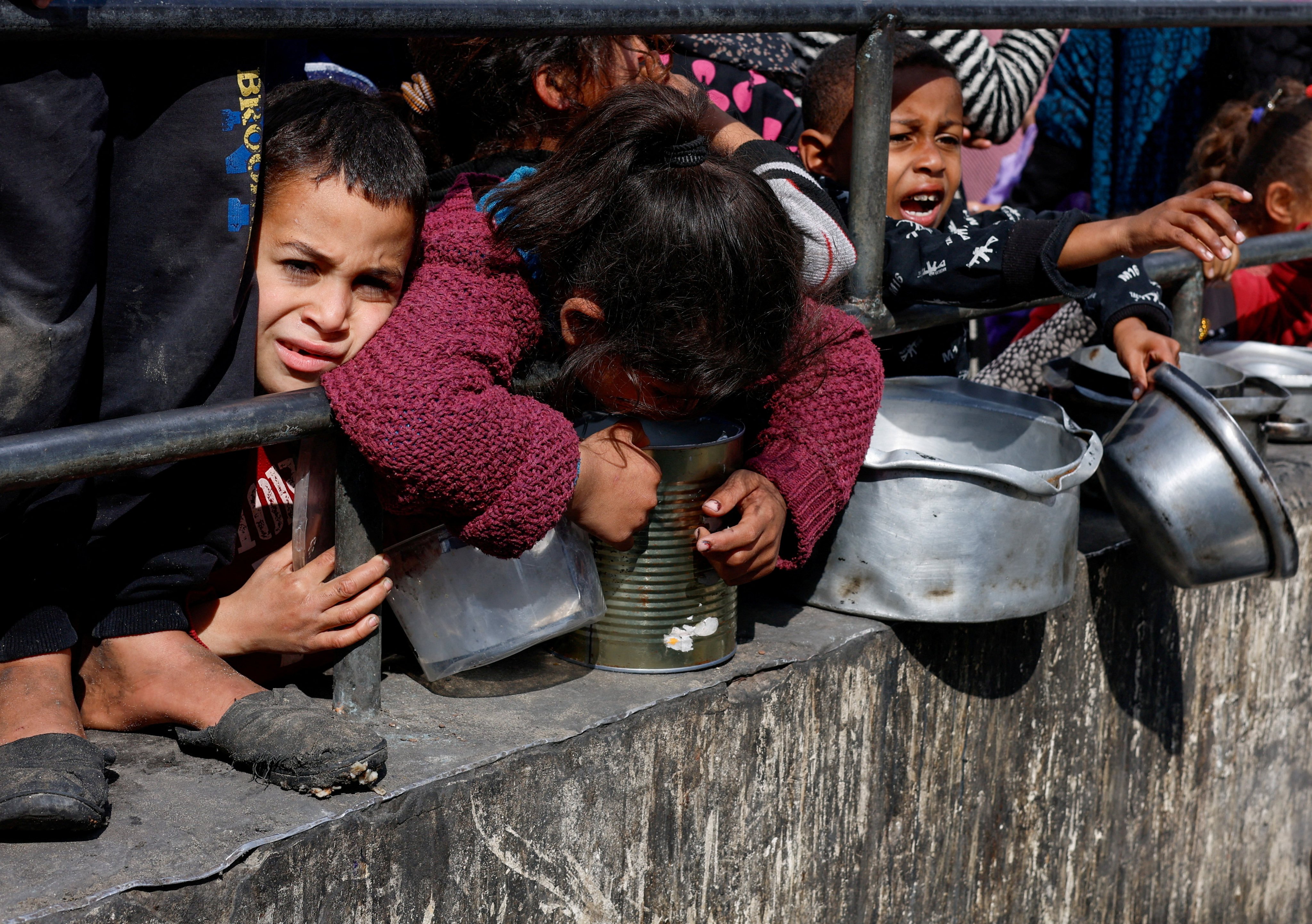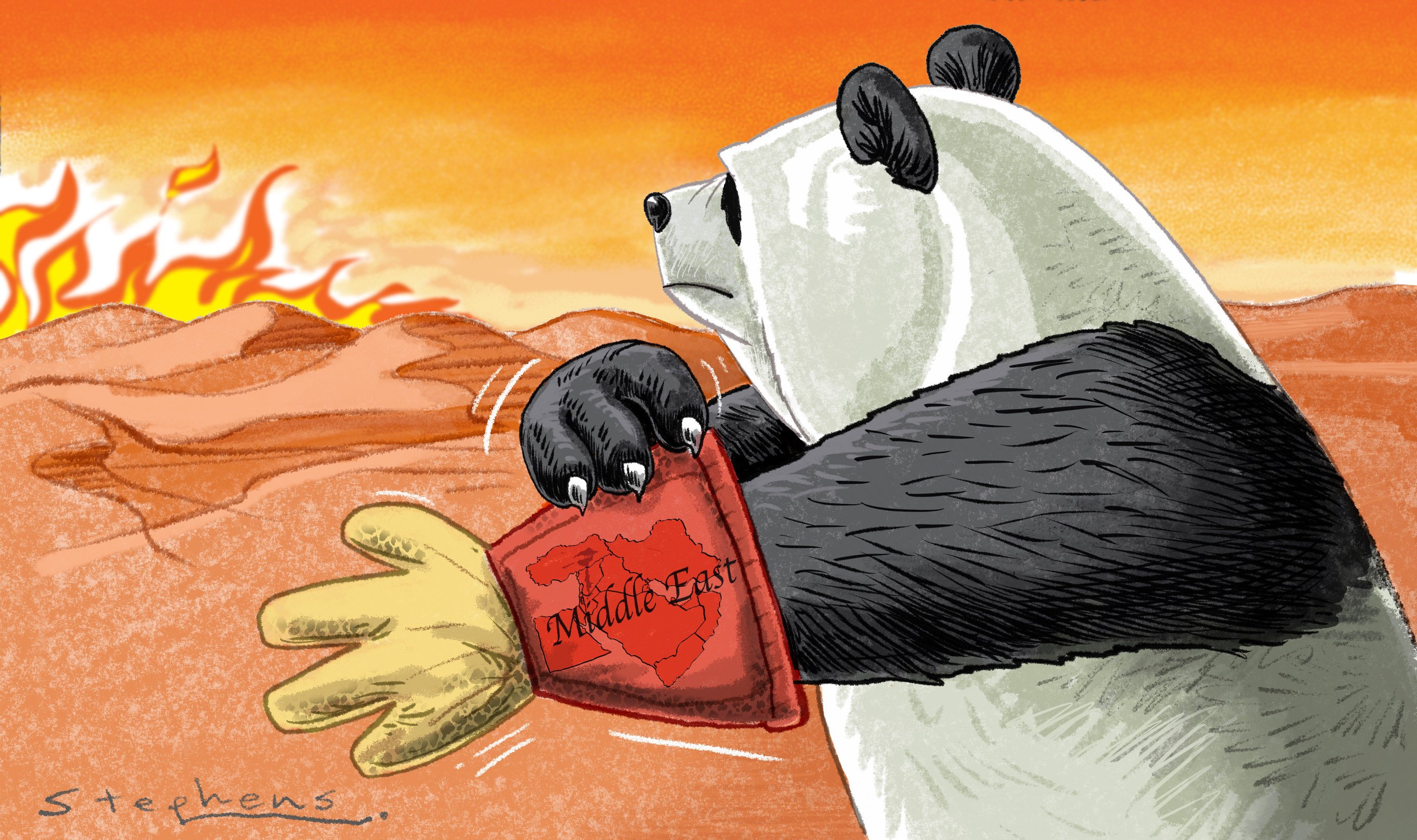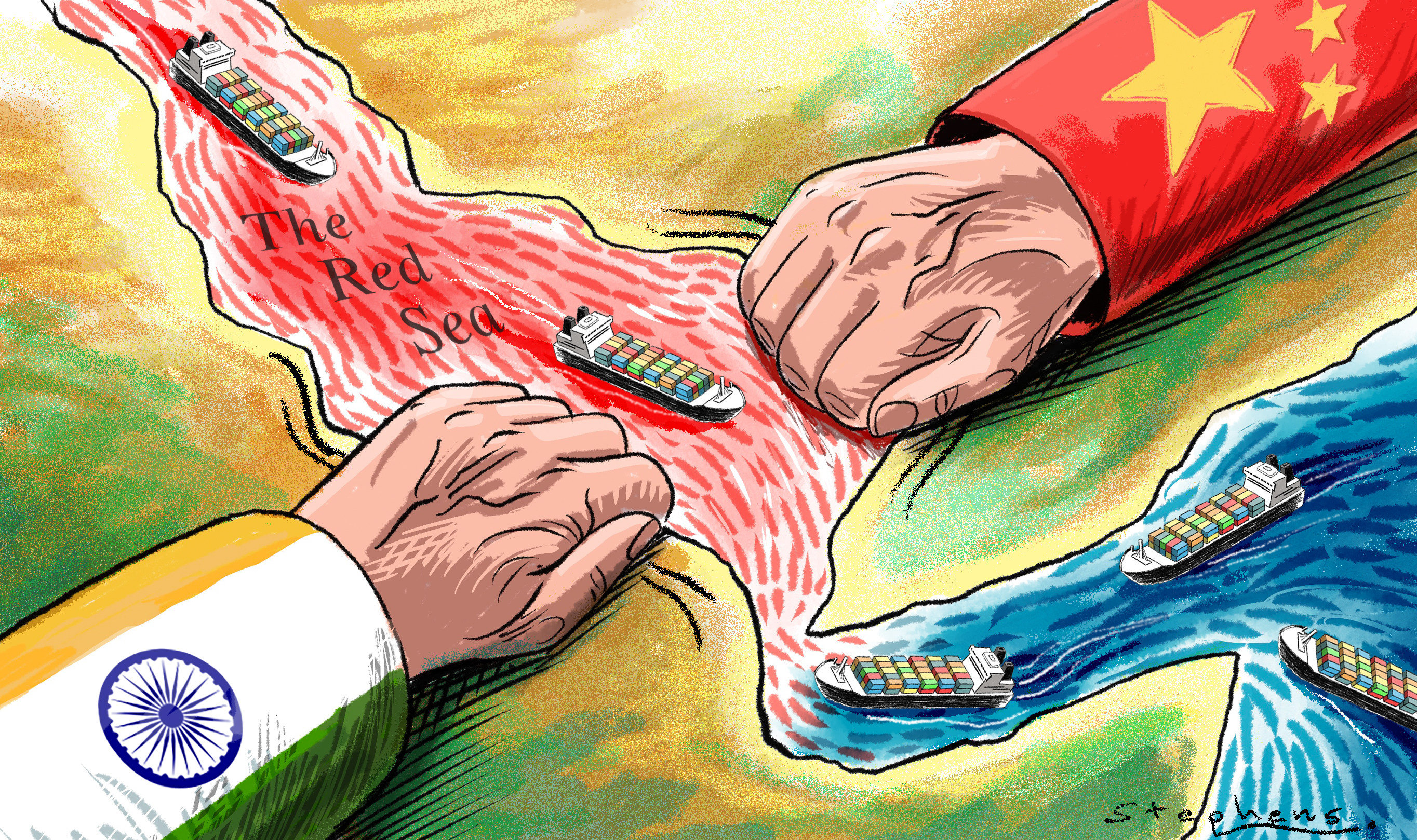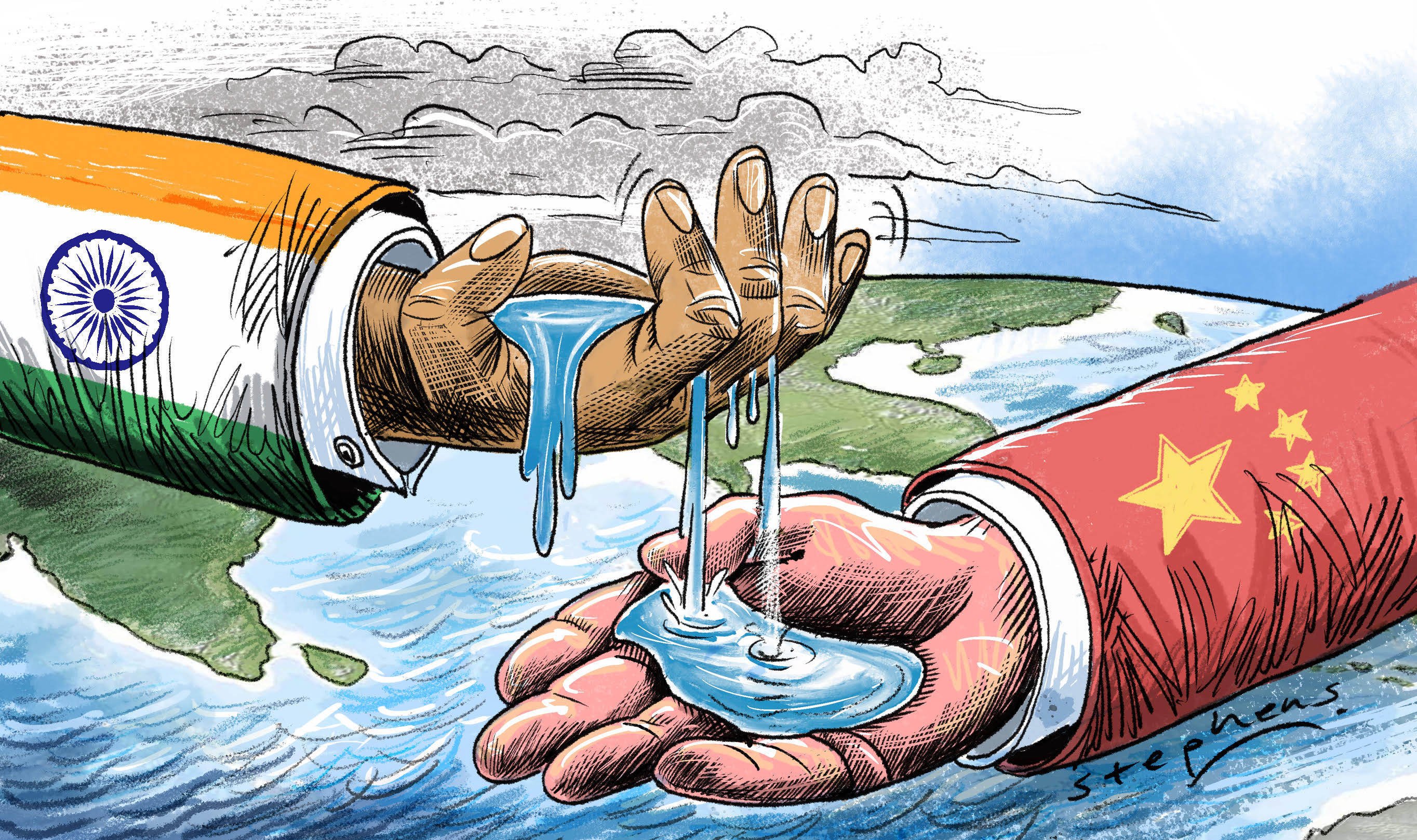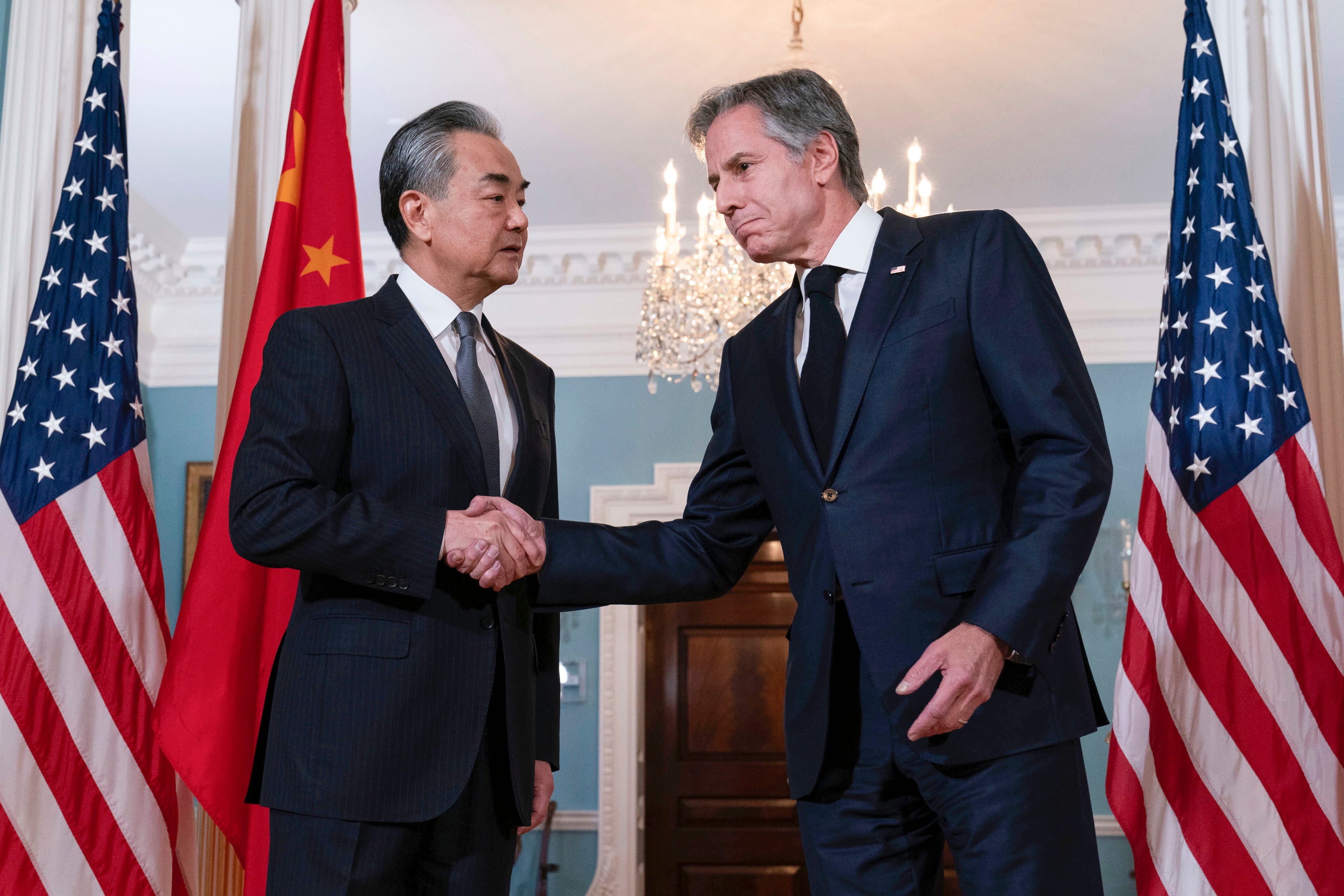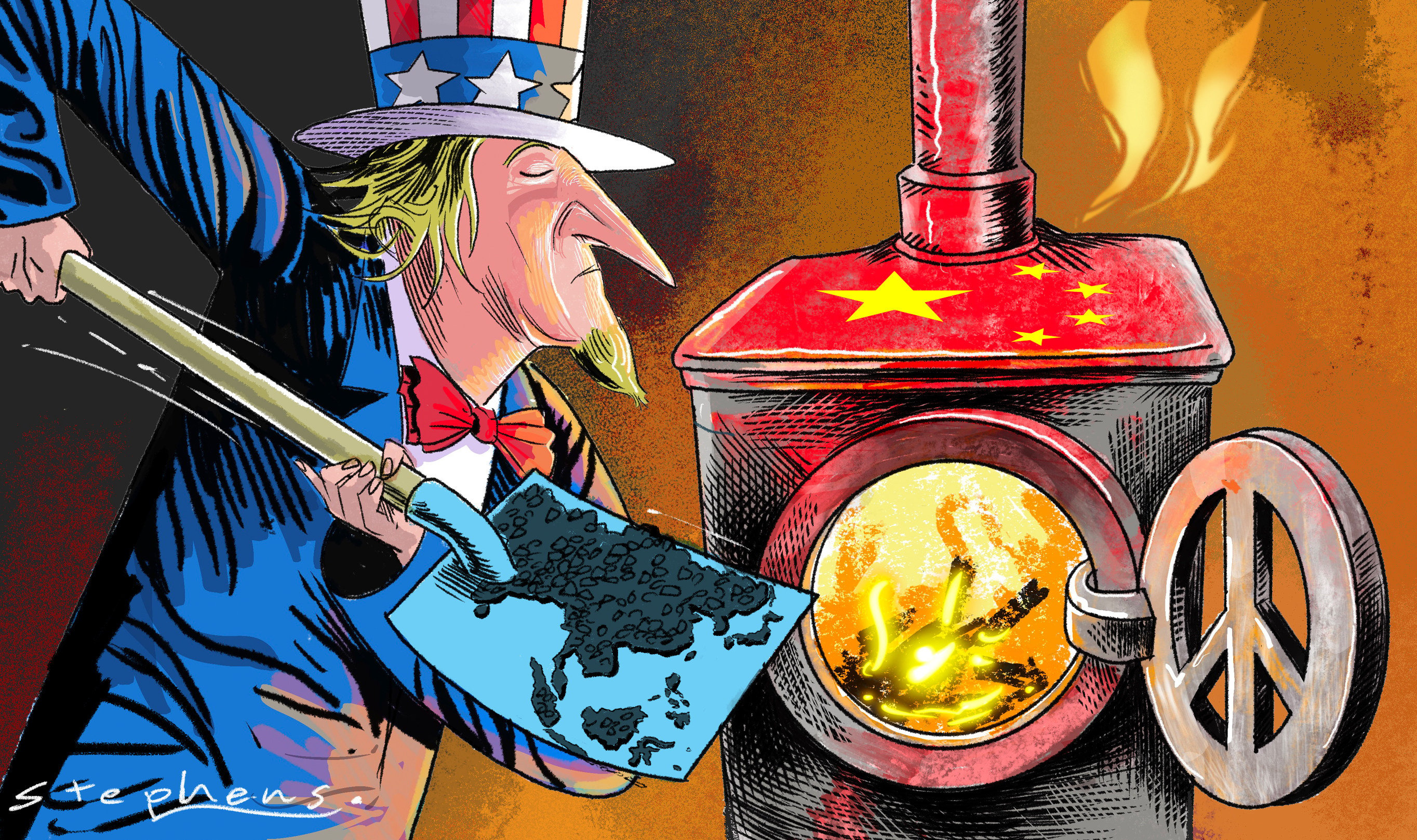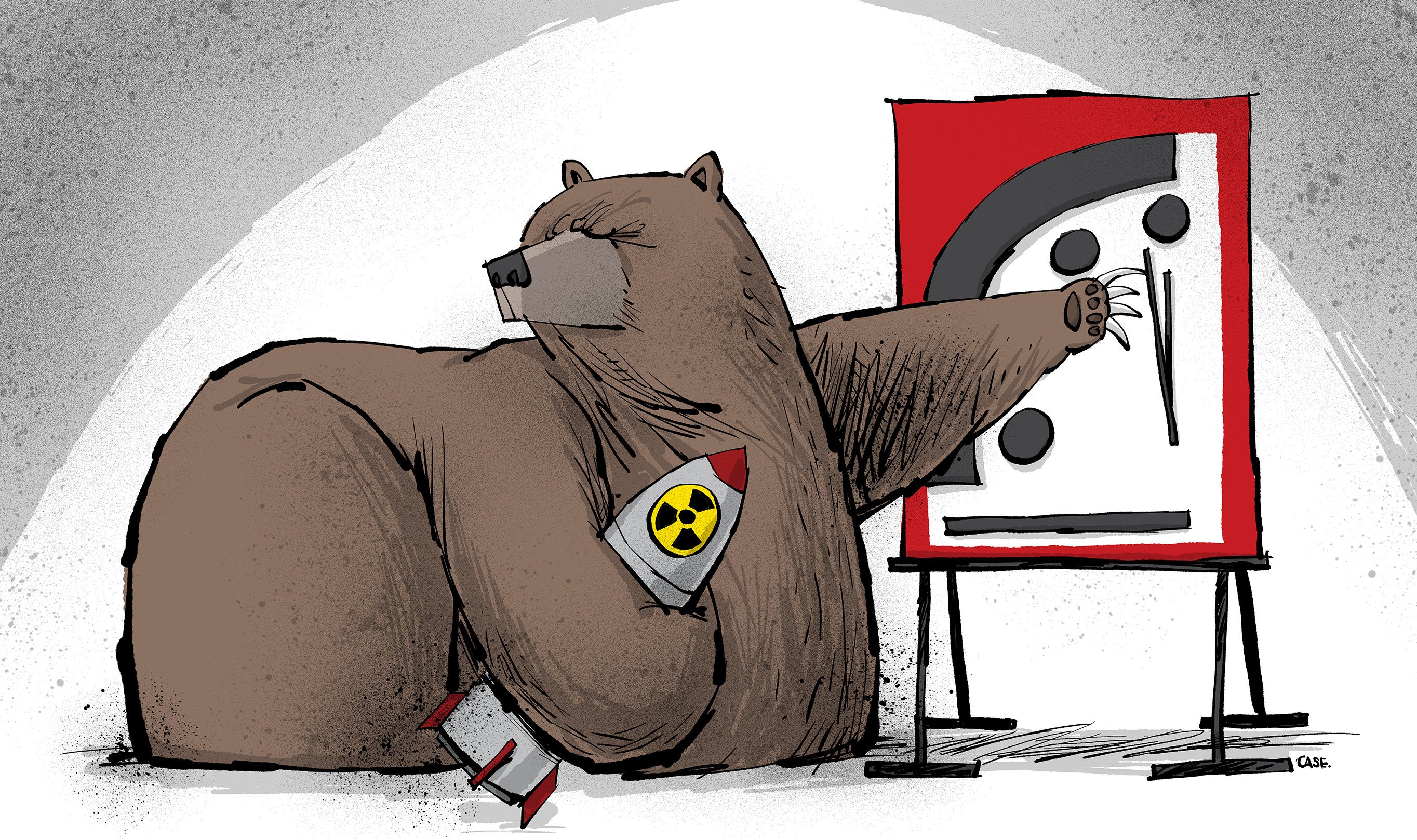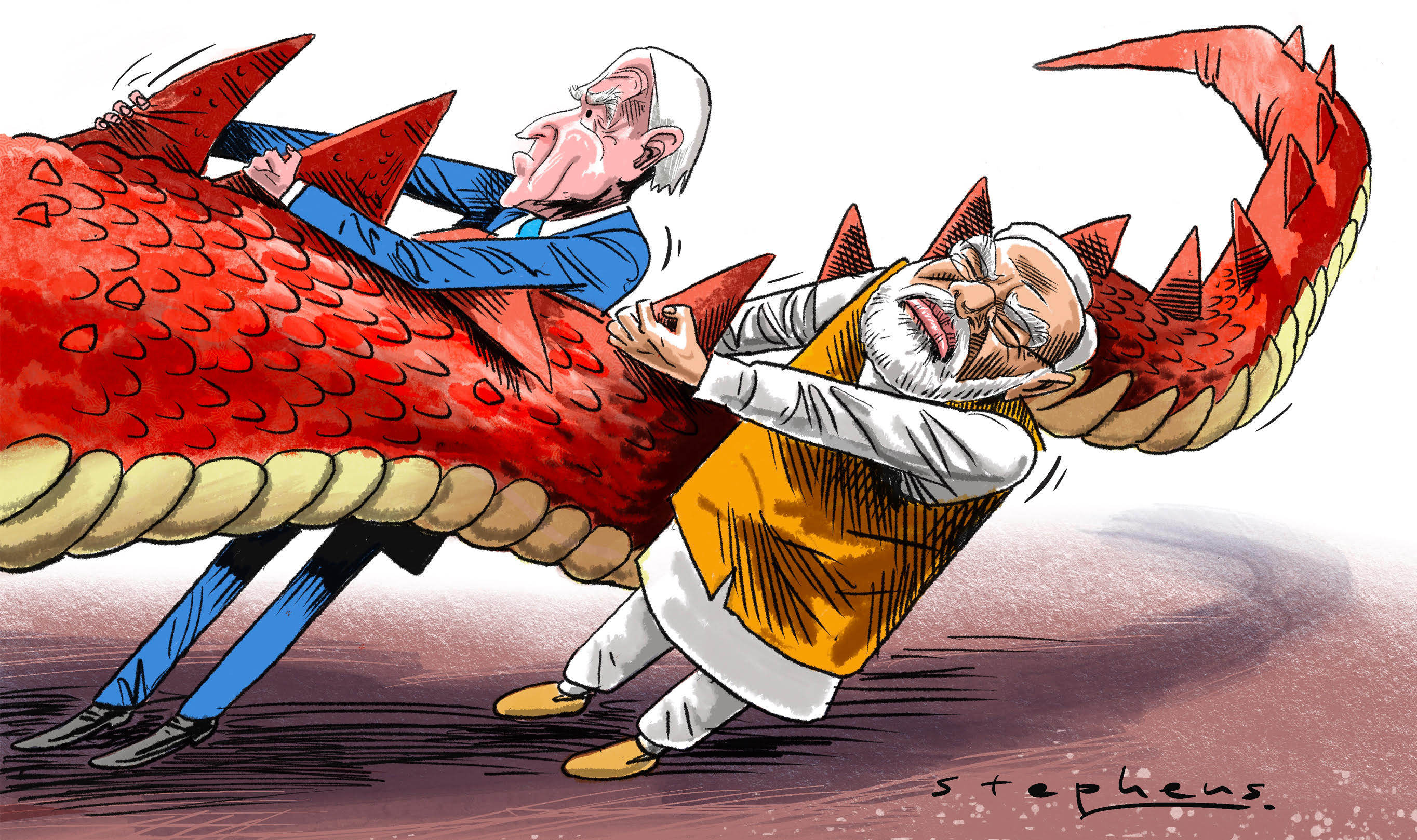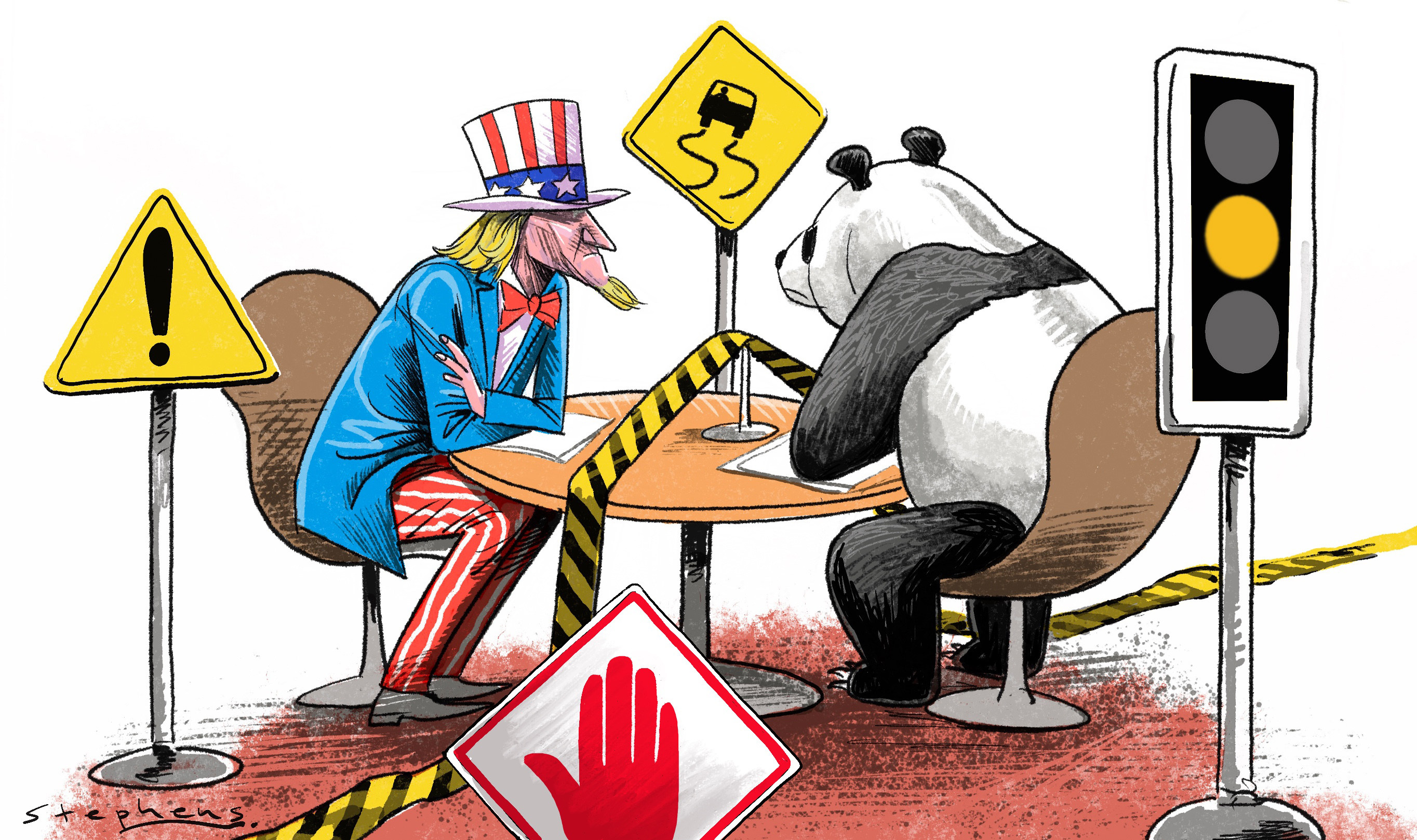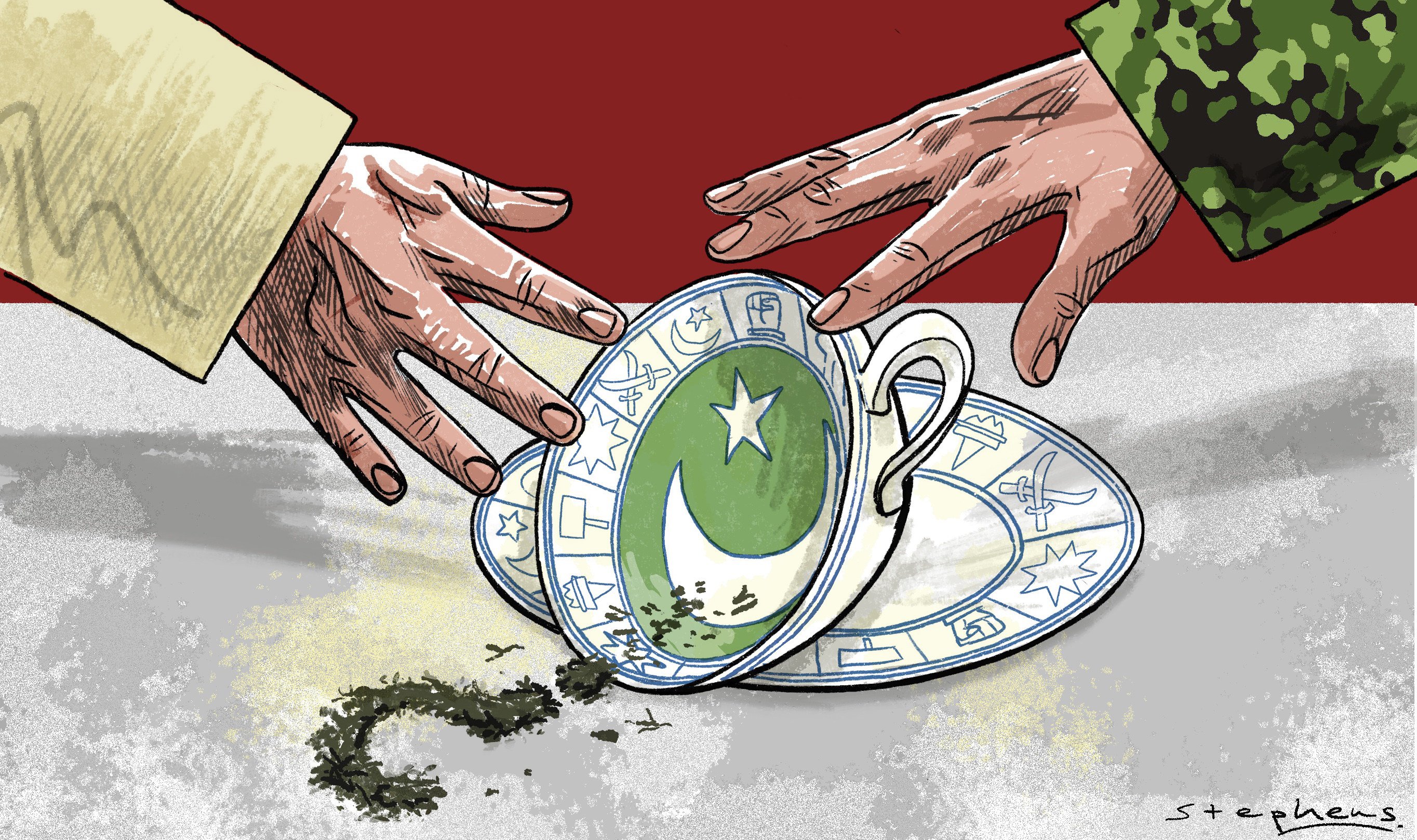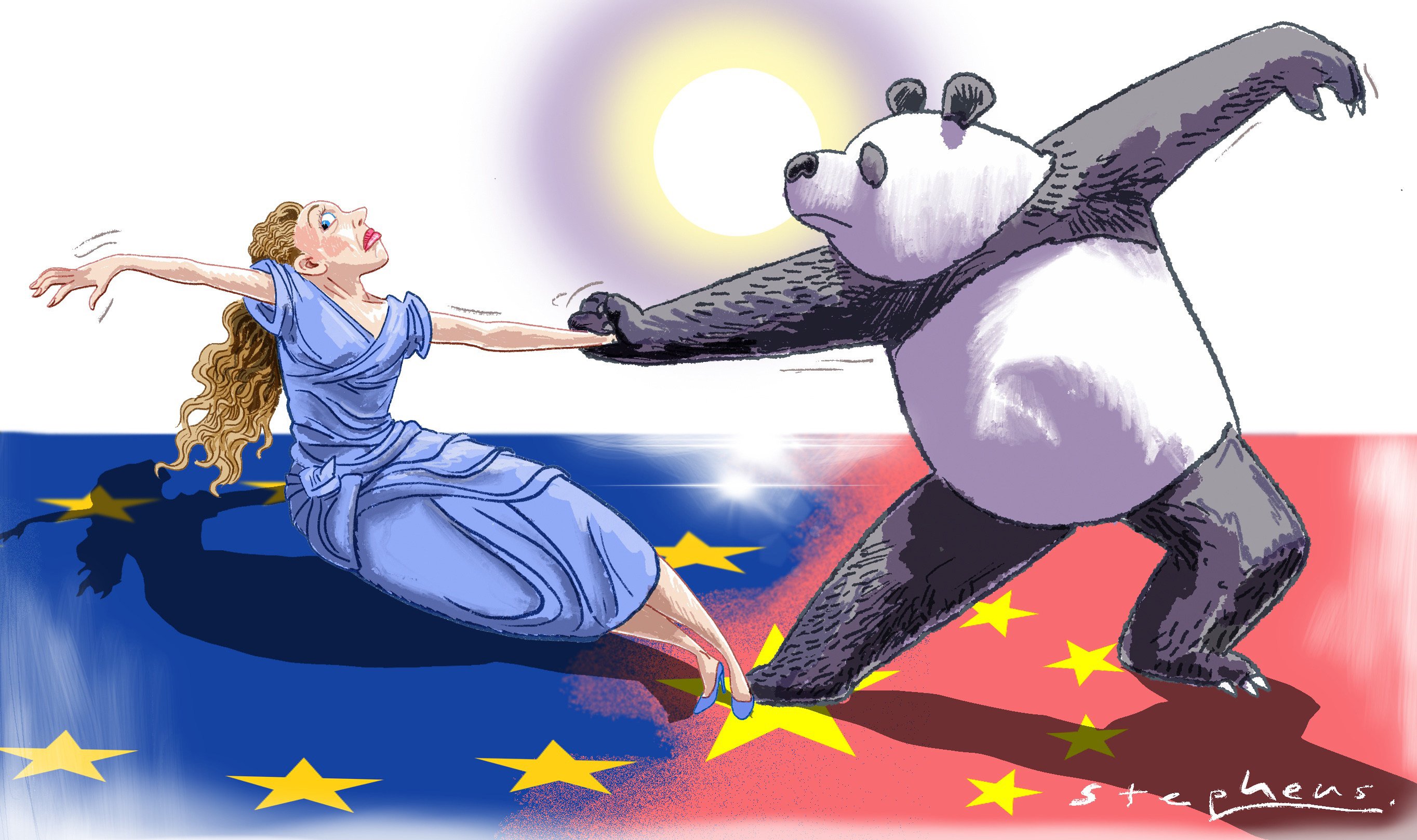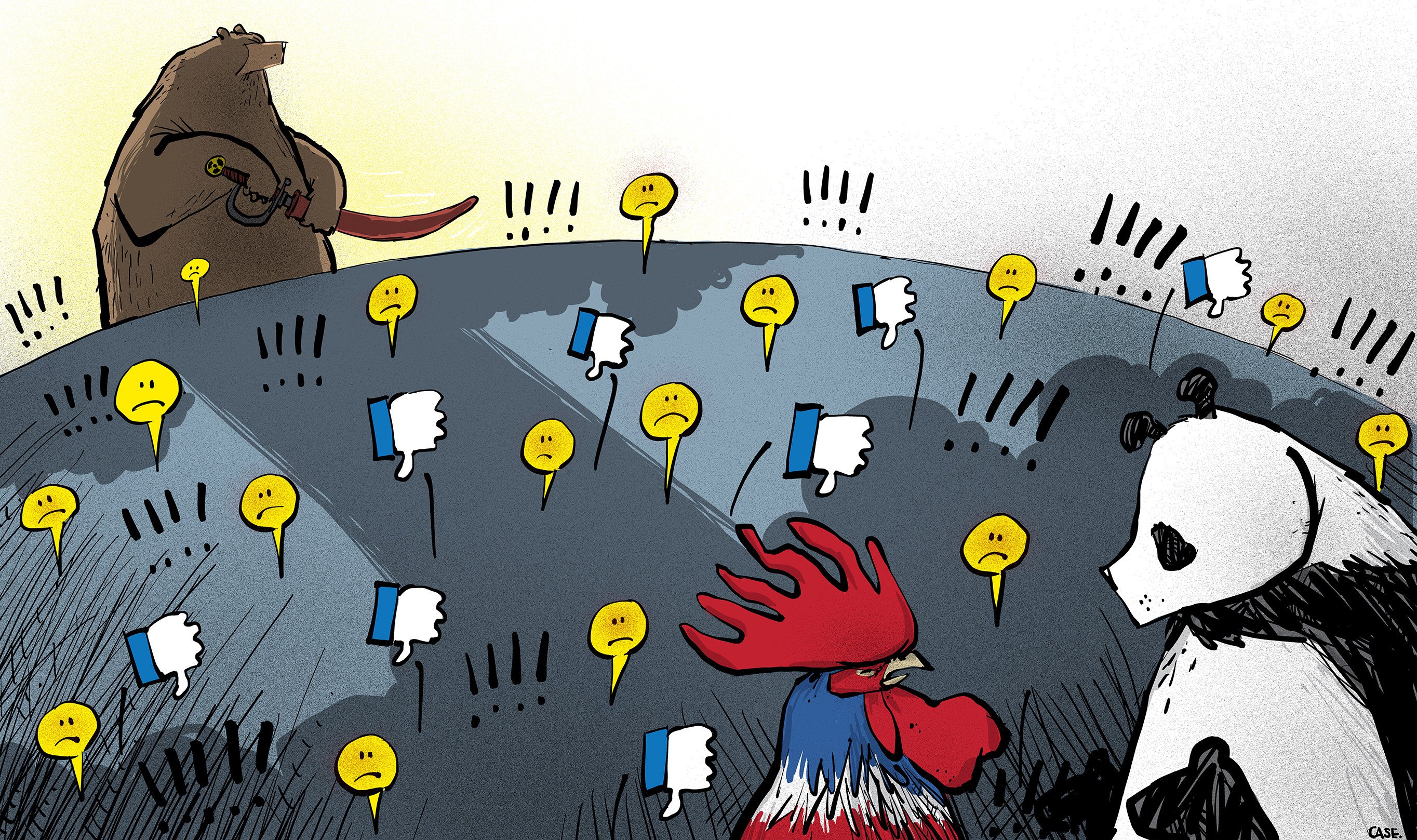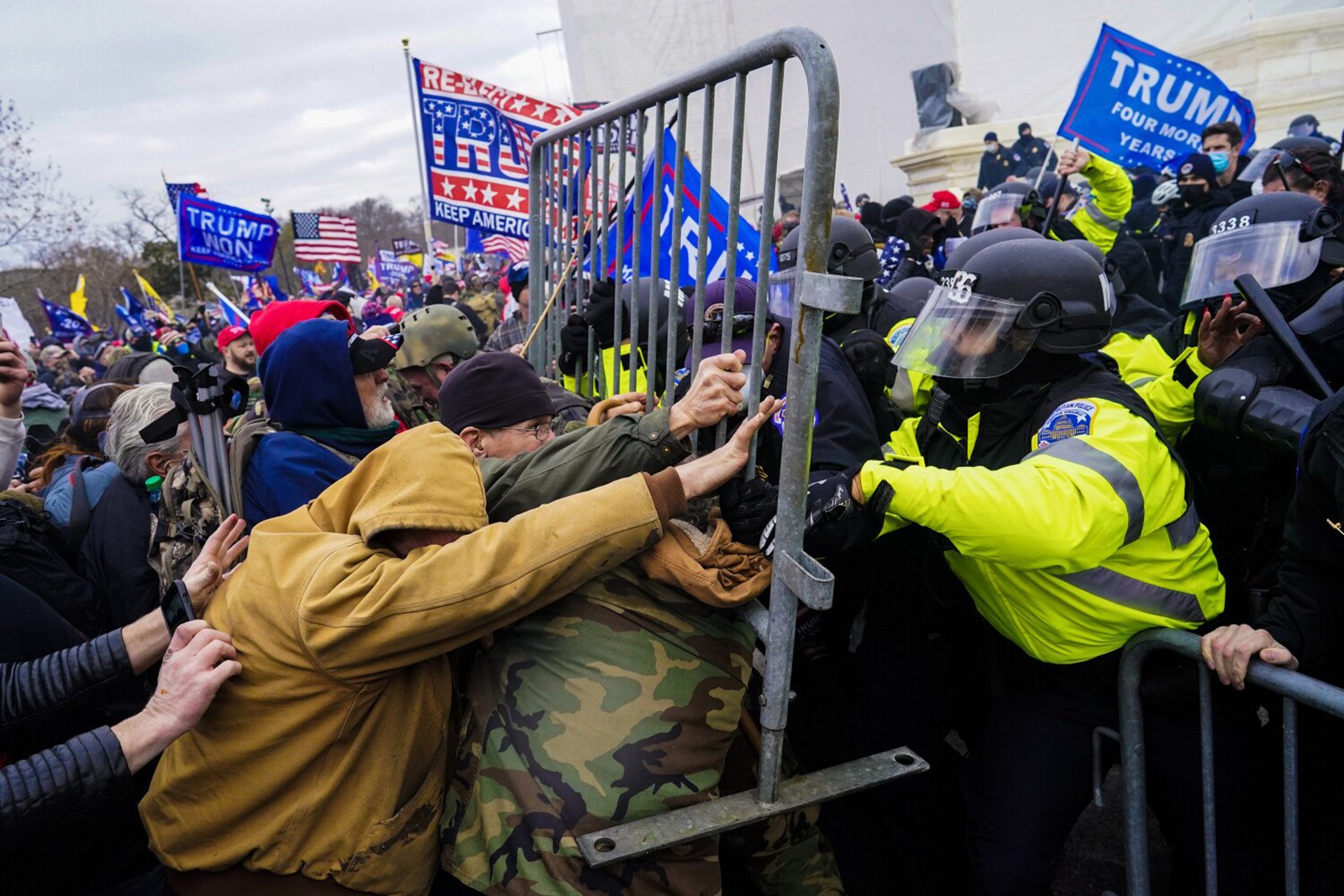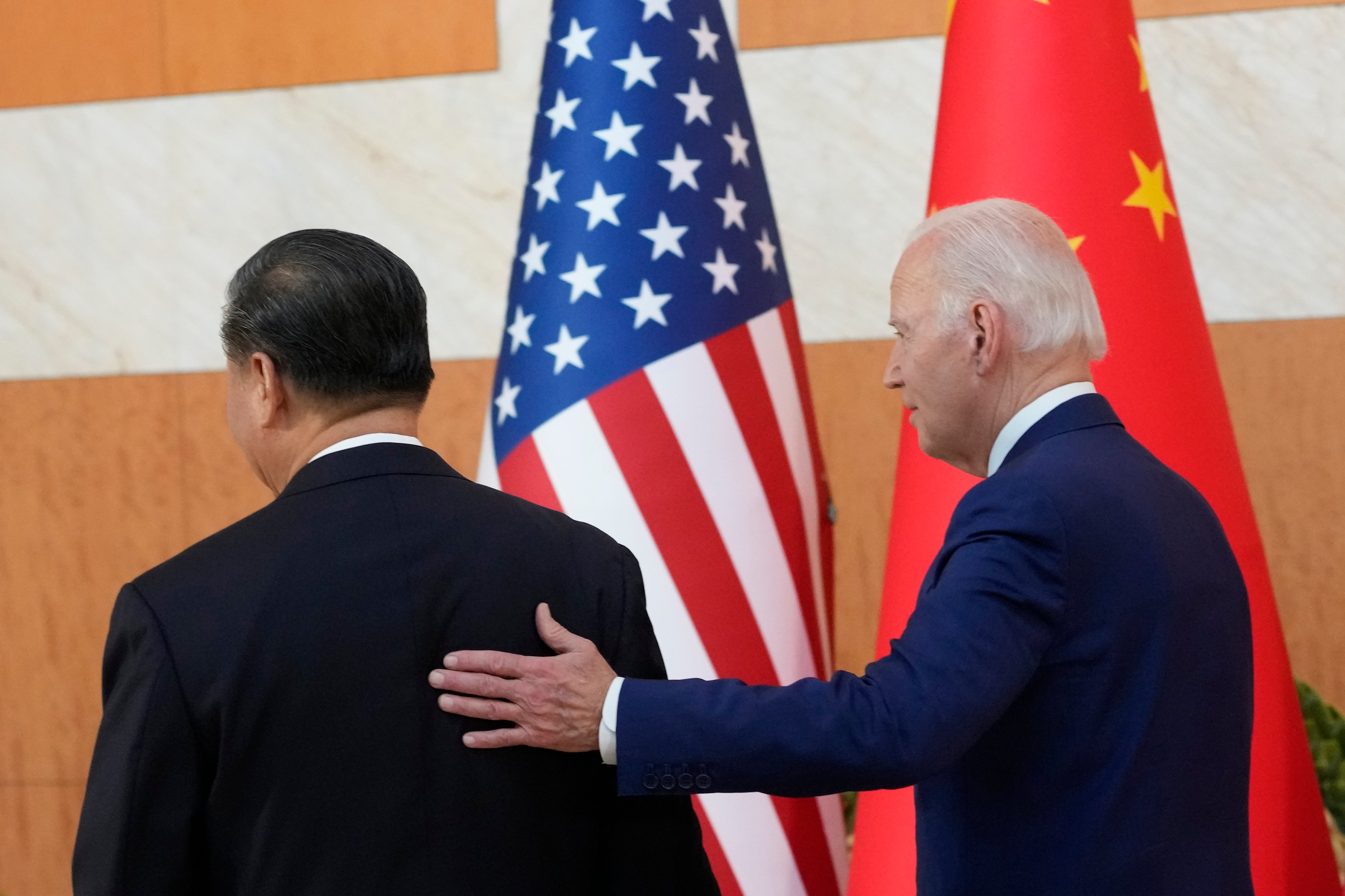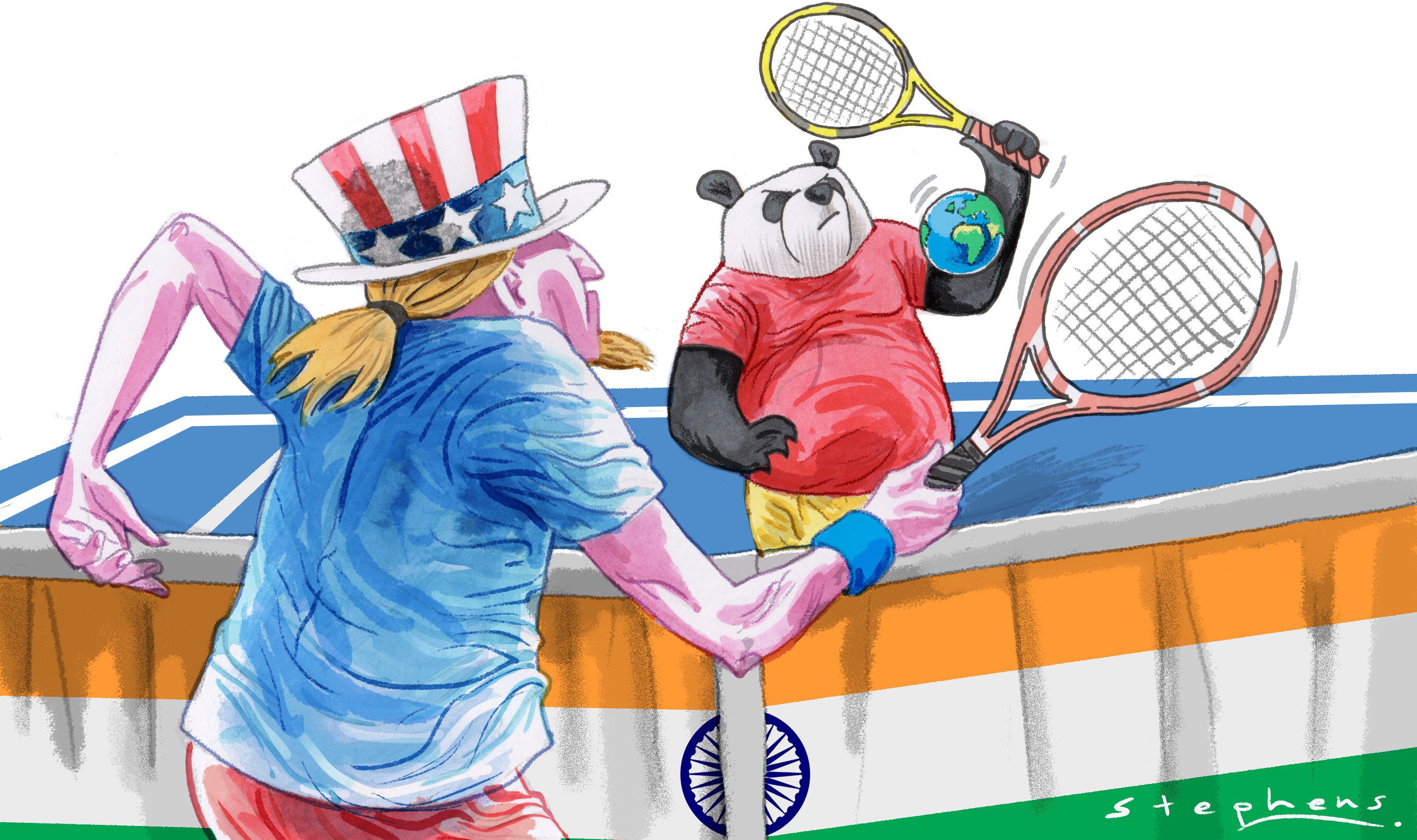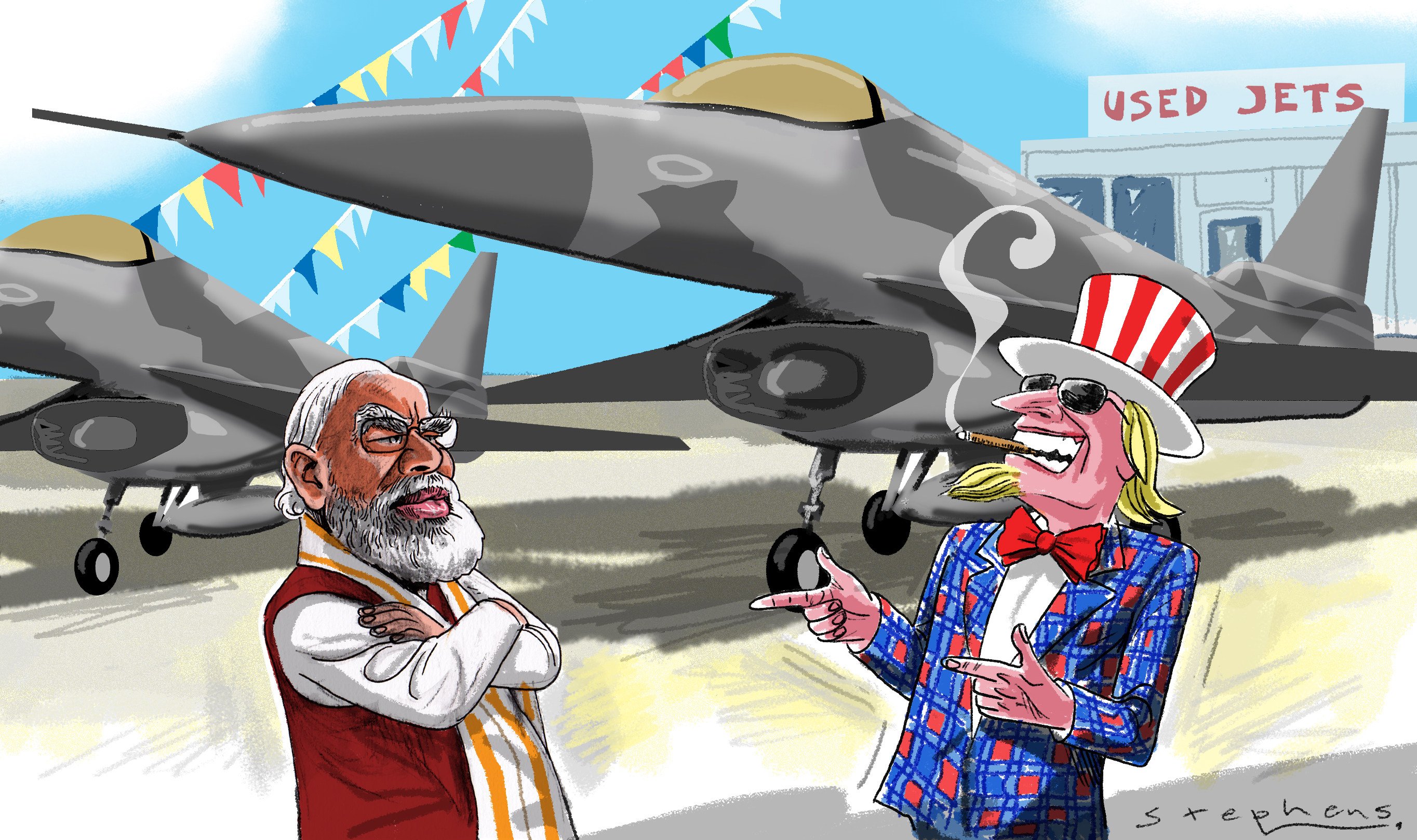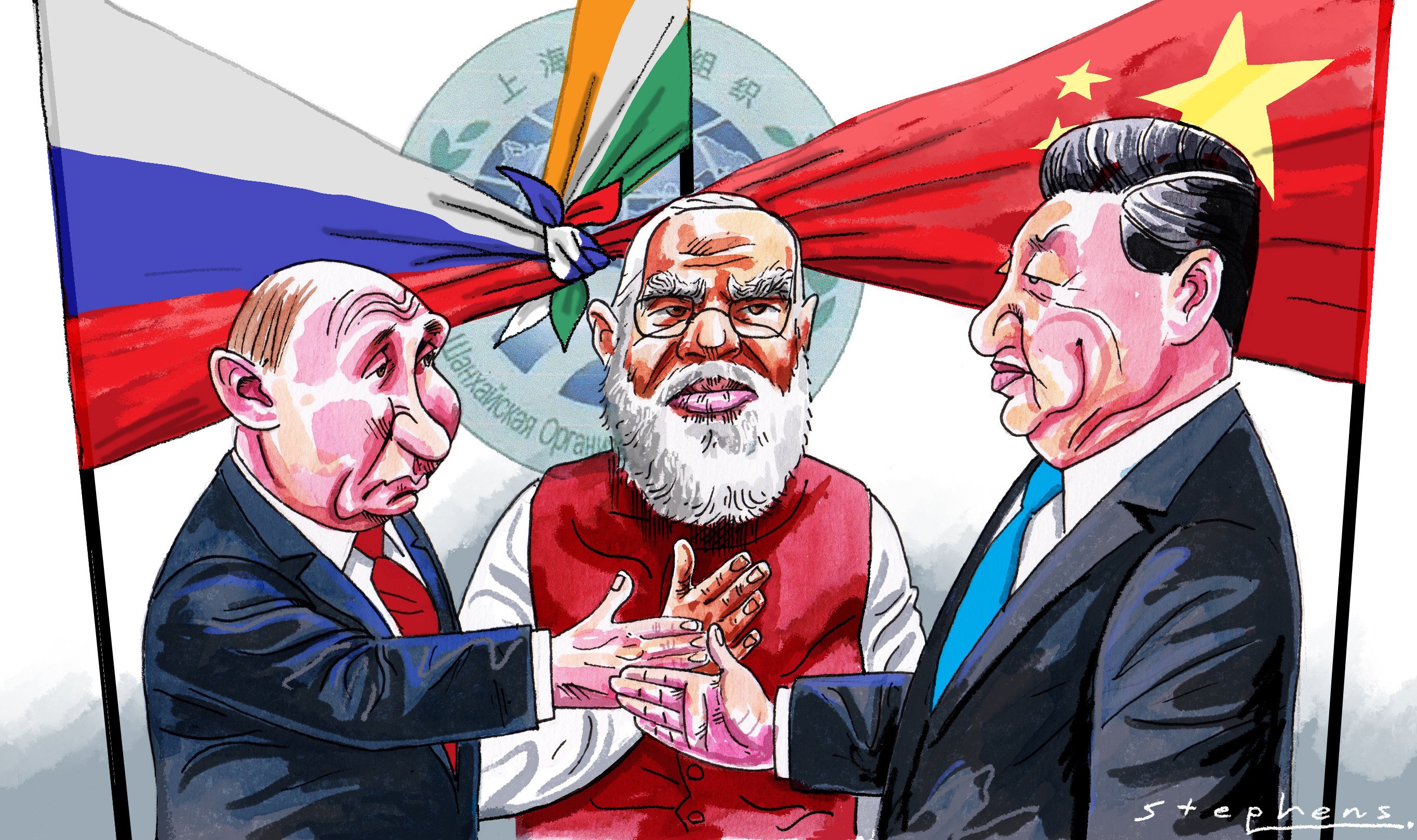Advertisement
Advertisement

C. Uday Bhaskar
Commodore C. Uday Bhaskar is director of the Society for Policy Studies (SPS), an independent think tank based in New Delhi. He was formerly head of two other major Indian institutions: the Institute for Defence Studies and Analyses (IDSA) and the National Maritime Foundation (NMF).
Keeping India-China dialogue open could add a slight but welcome bit of malleability to what could otherwise be a brittle strategic triangle.
As the world lurches towards nuclear conflict, we cannot afford to forget the catastrophe unleashed on Hiroshima and Nagasaki.
While Beijing initially dismissed the notion of the Quad, it now sees the grouping as a formidable force to reckon with in the coming years.
Modi’s visit to Kyiv was an extension of India’s deft diplomacy since the war began. China, too, is carefully calibrating its position.
Advertisement
The ousting of the leader marks the end of a period characterised by the kind of oppression her father fought against in Bangladesh’s birth.
The Beijing Declaration reflects China’s aim to project itself as a credible power and peace enabler in West Asia.
Upon electing a reformist as president, Iran’s political system and international pressures complicate the prospects of what can be achieved.
While the BJP’s underperformance shocked supporters and observers, Indian voters have restored hope in the country’s democratic process.
This month’s high-level diplomatic visits offer a glimpse into how world powers are repositioning themselves for the sake of national interests. No matter how intense geopolitical competition might get, great powers must not cross red lines into nuclear confrontation – tactical or otherwise.
Iran’s retaliatory strike on Israel and Hamas’ October 7 surprise attack are reminders that Israel’s deterrence capabilities are not infallible. Major powers must pursue diplomatic solutions to ensure the region does not descend into greater turmoil and bloodshed.
Faced with US ambivalence and Israel’s rejection, the ceasefire demand risks becoming a political footnote. At the least, council members should organise a humanitarian task force and evolve a plan to implement the spirit of the resolution
Political deadlock at the UN Security Council and divisions in major democracies are stonewalling a ceasefire in Gaza as the death toll is expected to reach 30,000. China and other major powers must step up to provide relief and manage contradictions in the world system.
China has a rare opportunity to explore options for lowering the temperature in the Middle East, by first seeking to end the spiral of violence and enable tentative negotiations.
While the lukewarm responses to the US-led counter-attacks are understandable, the major powers must rise above their divisions to protect a global good – safe passage for the world’s ships and their crew.
The recent election of Maldivian President Mohamed Muizzu has injected new impetus into India and China’s focus on Indian Ocean states. However, the real challenge for major powers will be dealing with exigencies, such as rising sea levels, that go beyond hard security issues.
Wang Yi’s visit to Washington is a welcome sign amid a backdrop of rising violence and increasingly chilly US-China relations. Next, Biden and Xi should meet at the Apec summit to prevent further cracks from appearing, and provide the leadership the world desperately needs.
The latest Indo-Pacific army chiefs’ meeting reflected growing US engagement and the region’s shared concerns about China’s military assertiveness.
While the addition of top oil-producing nations will give Brics greater heft, it is debatable whether the bloc will have enough cohesion to be effective. Strained India-China ties not only complicate the grouping’s dealings, but also hold back Asia’s potential to shine.
Nearly 80 years after the Hiroshima atomic bombing, the global nuclear taboo seems to be fraying amid Russian threats. The coming G20 summit is a chance to renew the global commitment to nuclear restraint.
The US and India have had a shared but muted strategic and security concern since the end of the Cold War in the rise of a revisionist China. How much New Delhi will benefit from Washington’s embrace is unclear, but Beijing faces the prospect of a growing coalition aimed at resisting it.
US-China tensions were on display at the latest Shangri-La Dialogue as their respective defence ministers largely kept away from each other. There were signs of progress elsewhere, though, with delegations from each side meeting in Beijing for ‘candid and productive’ discussions.
Public anger at the previously sacrosanct institution of the army, which Beijing has close links with, could risk Chinese interests in Pakistan, including the belt and road ‘economic corridor’.
Macron’s push for strategic autonomy and von der Leyen’s talk of ‘divide and conquer’ tactics in seeking a ‘distinct European approach’ reflect the EU’s dilemma in finding an effective China policy.
Russia’s decision to station tactical nuclear weapons in Belarus raises proliferation concerns, highlights geopolitical discord, and underlines the urgency of achieving an ethical consensus on the use of weapons of mass destruction.
Reports of spy balloons and other unidentified objects drifting through countries’ airspace call for making near-space use more consensual and transparent. Meanwhile, the breakdown in trust between the world’s two major powers bodes ill for a world weary after years of pandemic and conflict.
White supremacists and extremism remain a powder keg that could be ignited in the next presidential election. Also, if someone like Trump could be placed in charge of the ‘nuclear button’, are US nuclear codes secure enough?
Recent summits suggest the US and its allies will be in an extended tussle soon with the China-Russia partnership – an impasse that will hit geo-economic agendas across the world and doom the climate fight.
As the US marks out India as a major defence partner in the Indo-Pacific and China shows increasing resolve on maintaining its territorial integrity amid its border dispute with India, New Delhi is struggling to maintain its strategic autonomy.
The India-US relationship has grown from estrangement to one of engagement and is touted as one between partners and friends, but all is not well. New Delhi’s anger over Washington’s upgrades to Pakistan’s jet fighters is another example of US foreign policy clashing with India’s security interests.
The summit drew interest over a rare trip outside China for Xi Jinping, bringing him, Vladimir Putin and Narendra Modi together. However, the expressions of concern over Russia’s invasion of Ukraine and the lack of a Xi-Modi handshake show a petulance that augurs poorly for the SCO.

